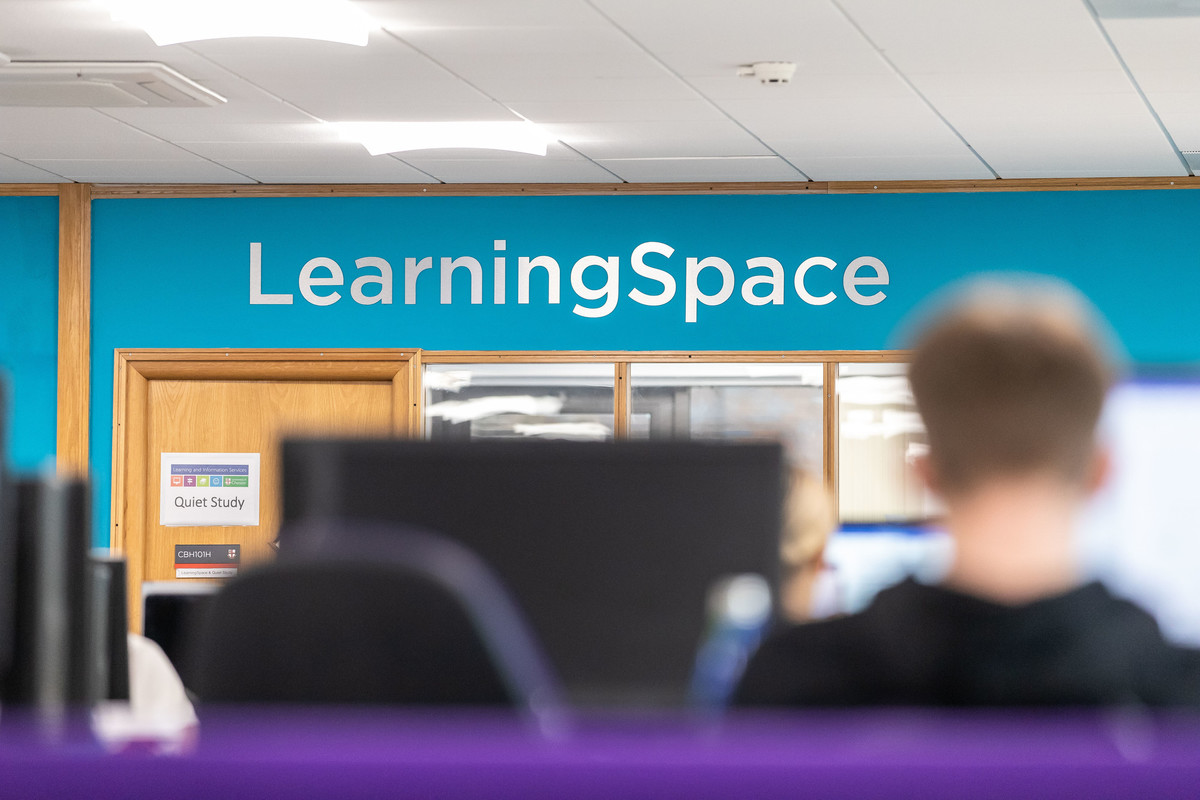International Business MSc


You are viewing Course summary
Course Summary
Our International Business course offers aspiring and developing managers the opportunity to gain valuable knowledge, skills and understanding of International Business.
Understanding the principles and practices of business management enables an aspiring or developing manager to make better quality decisions, enabling improved personal and organisational performance. This course develops an in-depth understanding of the management tools, techniques and controls available, and the ability to apply this understanding in the workplace.
Our course will introduce you to management tools and techniques that will enhance your business management knowledge. We combine academic study with workplace application, so you will get many opportunities to understand how to manage and make management decisions.
The use of case studies will give you the chance to develop valuable skills and understanding that will provide you with a strategic appreciation of the many facets of business management. Our tutors encourage discussion in class, so that you can gradually learn to form, express and defend your own opinions.
Guest speakers from industry are also invited into class to share their experience with you, enabling you to appreciate the real-world application of academic theory. In association with the course, there are opportunities for you to apply for an internship.
There is an option to choose a Project/Placement year for this course, at an additional cost.
Optional 2-year master's to suit your needs
Choosing a Professional Placement MSc is a win-win for your career, giving you the chance to get real experience, apply your cutting-edge skills in the workplace and stand out to future employers.
In the first year you will have help from the University to find a placement, whilst developing your expertise. You will then spend your second year out in industry on placement, getting the chance to work with industry professionals and grow your network of industry contacts. Bringing the latest business school insights to industry, you will get to make a difference to the workplace and make lasting links with your employer.
Students need to find and secure their own placement, supported by the University. A preparation module will also help you to get ready for your placement.
Please note, this programme is available as a one-year master degree programme, or as a Two-Year Master's Programme with a Professional Placement or Project. Please carefully consider your options when applying for our one year or Two-year routes as successful international applicants will not be able to change between programmes after a Confirmation of Acceptance of Studies (CAS) letter has been issued or after arriving in the UK.
What you’llStudy
Our modules focus on a number of aspects of management, including international business and international marketing strategy. The Management Research Project module will enable you to research in depth a practical topic of interest to you. The focus is very much on the practical application of your knowledge and understanding, which should help you to make a significant contribution to a future employer.
If you choose a placement or project year, the Research Dissertation module will be replaced by a placement or project module.
Module content:
A programme of individual study and research project in accordance with established research principles involving the completion of the following elements:
Management Research Project
Module aims:
To provide the opportunity to apply management knowledge, skills and research techniques developed during the programme to the identified area of management interest.
To develop students’ intellectual ability in terms of problem solving, critical analysis and conceptual thinking.
To provide students with the opportunity, and the enabling mechanisms to support their development towards independent learning.
Module content:
The nature, extent and purposes of management research
Management research paradigms
Research strategies
Research designs, methods and approaches
Research quality standards: establishing validity, reliability and generalisability
Sampling and Research instrument design
Research ethics
Research Data Management: collection, organisation and analysis
Managing a dissertation research project
Module aims:
The aim of this module is to enable learners to:
Understand and critically evaluate the findings of management research
Design and implement a management research project using methodologies and methods appropriate to research questions and objectives
Analyse and report management research findings meeting academic and practitioner needs
Module content:
Strategic financial accounting:
- Understanding the format of financial reports and financial accounts.
- Analysis of financial reporting.
Strategic management accounting:
- Identify and assess the impact of current developments in management accounting and performance management on measuring, evaluating and improving organisational performance.
- Apply appropriate strategic performance measurement techniques in evaluating and improving organisational performance.
Module aims:
- To enable students to explore and develop an understanding of the theoretical techniques, concepts and methods employed in strategic financial management.
- To develop the ability to apply the theoretical to the practical, through the analysis of data and application of relevant techniques in the context of varied situations.
- To evaluate and develop a critical and reflective awareness of the importance of the application of relevant, available techniques to the enhancement of strategic financial decision making and business performance.
Module content:
-
Organisational behaviour/culture, structure and design;
-
The role of the manager, leadership theories, styles and approaches;
-
Groups and teams in the organisation – group formation, team working;
-
Individual personality, communication and motivation;
-
The role of Human Resource Management in the workplace;
-
Strategies for high performance working (HPW);
-
Employee relations and employment dynamics;
-
Performance Management and managing poor performance;
-
Learning and development methodologies;
-
Theories and application of reflective practice.
Module aims:
This aims of this module are;
- For students to draw upon key concepts of leading and managing people and examine how these apply to the current and future world of work;
- For students to explore and develop an understanding of key theories and concepts in the field of people management and development;
- For students to be able to synthesise knowledge of people management, together with gaining awareness of wider contextual issues in order to address organisational challenges.
Module content:
Module content will offer practical, action-orientated master's learning combined with a discourse on economic, social and environmental dimensions as they relate to start-up. Through workshops, seminars and case studies, students will be introduced to the principles, methods and challenges of sustainable business venture creation, with a specific focus on the process of team preparation of a written business plan appropriate for presentation to potential business investors. The plan will be accompanied by a critically reflective commentary on the process of production.
The teaching and facilitation will feature theoretical and experiential perspectives, with particular focus on the extent to which understanding relates to the pragmatic processes of new business start-ups (and social enterprises) and growth. Included in the content will be perspectives on global citizenship, environmental responsibilities, social justice and global inequalities, ethics and sustainable leadership in the context of an entrepreneurial mindset. In exploring key aspects related to the process of new venture creation, the different stages will be studied, in particular an analysis of the creative process at the 'ideas' stage. The entrepreneurially distinct requirements of business planning, in terms of marketing, finance, human resources, and operation management will feature. The differences between 'entrepreneurial' and 'management' approaches will be analysed.
Module aims:
The module aims to equip MSc International Business Students with an advanced understanding of developing a sustainable business idea and translating that idea into a responsible, feasible business plan, capable of securing backing for a global marketplace launch.
Module content:
The following is illustrative of what the module will cover:
- International marketing and understanding the global environment
- Understanding market trends and opportunities for innovation and development
- Cultural diversity and the implications for international marketing and communication skills
- Development and complexities of the international marketing strategies including the global supply chain
- Intercultural marketing communications
- Implementing and coordinating international marketing operations including market entry and exit strategies
Module aims:
This module is designed to provide students with a comprehensive conceptual and contextual appreciation of all aspects of international marketing – which are hopefully addressed but, in particular, we do consider heavily the all-important cultural issues and frameworks that impact on the entire process.
The module complements the comprehensive conceptual and contextual appreciation of both buyer behaviour and marketing communications – but here in an international context.
This unique module further underpins the study of marketing management and as such is another critical and fundamental element to this pathway. It links strategic marketing to corporate strategy, and the necessary strategic decisions required in a contemporary global marketing context.
This module aims to:
- Enable students to critically evaluate theoretical underpinnings that could be employed within the field of international marketing. To enable students to apply knowledge of contemporary international marketing strategies and techniques
- Encourage students to reflect on their own experience and practice as consumers and stakeholders in a global context
- Critically reflect on the changing nature of marketing in a global/international context
- Provide a strategic appreciation of contemporary international marketing
Module content:
Indicitive content:
- Conceptual foundations of international business in an age of globalisation
- Understanding the international business environment and economy: the influence of political, cultural, economic, legal, social, ecological, and technological factors
- The nature and different interpretations of globalisation and its consequences: Regional economic integration and cooperation
- Dynamics of global strategy: understanding industries and markets, locational competitiveness, emerging factors for change
- Expectations and purposes: cross-cultural management, international stakeholder expectations, business ethics and corporate social responsibility
- Business operations in an international context: Risk analysis, the developing global marketplace, operational decision making and culture and organisational design
- Emerging issues in international business and globalisation
Module aims:
- To equip students with the appropriate tools and techniques which will allow for the critical analysis, critical evaluation and application of international business strategies.
- To immerse students in a variety of practical workshops whereby collaborative creation, critical analysis and critical evaluation of business case studies can take place.
- To develop employability skills related to international business in the workplace, such as critical thinking, problem solving, effective communication, negotiation, critical analysis and critical evaluation.
- To explore, investigate, analyse and compose an effective business proposal related to international business growth and the inherent risks posed by this action.
You will learn by attending regular, scheduled sessions, which could be lectures, project work, presentations, discussions or case studies, as well as one-to-one sessions with your tutors. The course includes six taught modules plus the Management Research Project. Assessment of your learning could be through written assignments, in-class tests, examinations or presentations, as well as completion of an individual management report.
Entry Requirements
2:2 honours degree
Applicants will normally be expected to hold a degree with a minimum 2:2 honours, or equivalent. Applications are also welcome from those with non-standard entry qualifications. A typical applicant may be a new/recent graduate, who has attained an honours degree and wishes to augment that with further study to optimise their career opportunities.
2:2 honours degree
Applicants will normally be expected to hold a degree with a minimum 2:2 honours, or equivalent. Applications are also welcome from those with non-standard entry qualifications. A typical applicant may be a new/recent graduate, who has attained an honours degree and wishes to augment that with further study to optimise their career opportunities.
Please note, some programmes have special entry requirements.
English Language Requirements
For more information on our English Language requirements, please visit International Entry Requirements.
Fees and Funding
£8,775for a full-time course (2025/26)
Guides to the fees for students who wish to commence postgraduate courses are available to view on our Postgraduate Taught Programmes Fees page. Here you will also find information about part-time fees and project/placement year fees.
£15,000for a full-time course (2025/26)
The tuition fees for international students studying Postgraduate programmes in 2025/26 are £15,000.
Please note: For MSc programmes where a placement or project year is undertaken there will be an additional charge of £2,750 for the placement/project year (due at the start of the second year of the course).
The University of Chester offers generous international and merit-based scholarships for postgraduate study, providing a significant reduction to the published headline tuition fee. You will automatically be considered for these scholarships when your application is reviewed, and any award given will be stated on your offer letter.
For more information, go to our International Fees, Scholarship and Finance section.
Irish Nationals living in the UK or ROI are treated as Home students for Tuition Fee Purposes.
Your course will involve additional costs not covered by your tuition fees. This may include books, printing, photocopying, educational stationery and related materials, specialist clothing, travel to placements, optional field trips and software. Compulsory field trips are covered by your tuition fees.
The University of Chester supports fair access for students who may need additional support through a range of bursaries and scholarships.
Full details, as well as terms and conditions for all bursaries and scholarships can be found on the Fees and Finance section of our website.
Your future Career
Job prospects
The MSc International Business can open up global career opportunities in areas such as Retail, Manufacturing, Leisure and Local and National Government and the Not for Profit sector. Employers value the unique skills sets and global mindset that students acquire through this programme making them more attractive in the job market.
Careers service
The University has an award-winning Careers and Employability service which provides a variety of employability-enhancing experiences; through the curriculum, through employer contact, tailored group sessions, individual information, advice and guidance.
Careers and Employability aims to deliver a service which is inclusive, impartial, welcoming, informed and tailored to your personal goals and aspirations, to enable you to develop as an individual and contribute to the business and community in which you will live and work.
We are here to help you plan your future, make the most of your time at University and to enhance your employability. We provide access to part-time jobs, extra-curricular employability-enhancing workshops and offer practical one-to-one help with career planning, including help with CVs, applications and mock interviews. We also deliver group sessions on career planning within each course and we have a wide range of extensive information covering graduate jobs .
 ">
">
 ">
">




.jpg)







